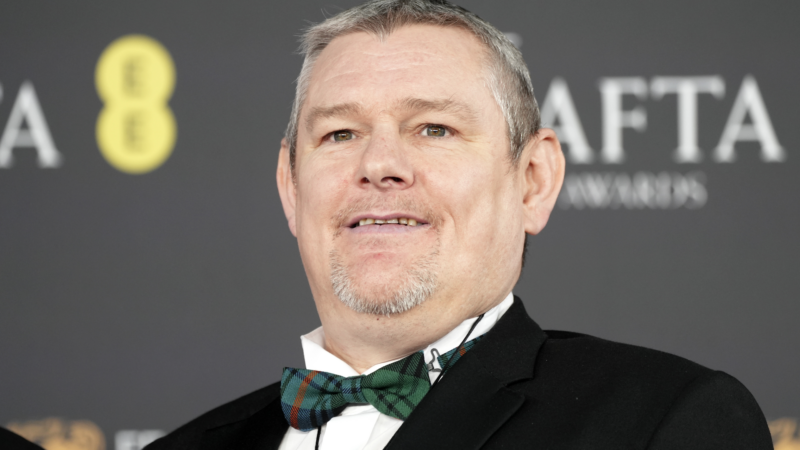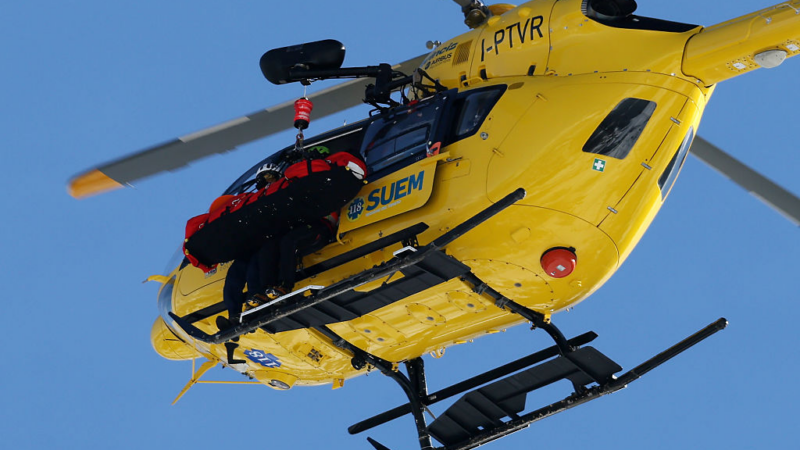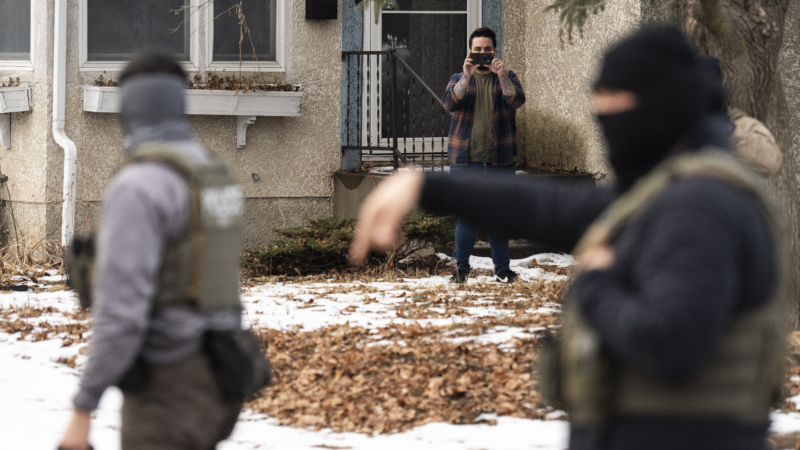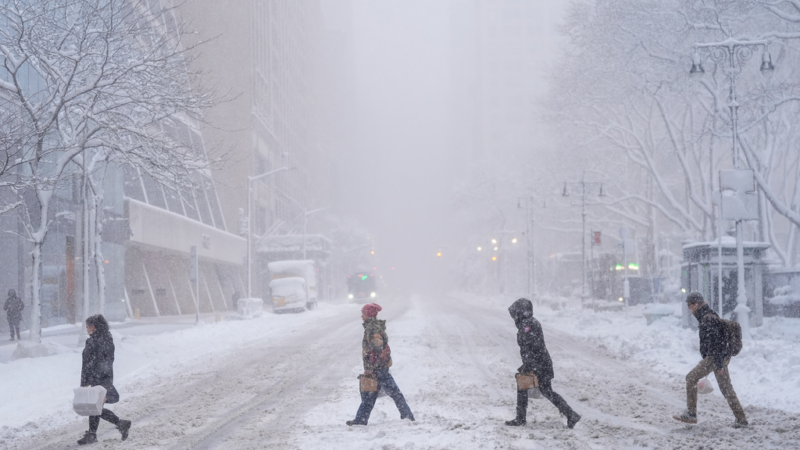The story behind the arrest of 87-year-old veteran John Spitzberg at the Capitol
In the video, one officer wheels away John Spitzberg’s rollator walker, while the other uses zip ties to bind his hands behind his back.
The 87-year-old veteran is unsteady on his feet — the result of several disabilities he suffers — as the crowd applauds, cheers and chants “We won’t back down, we won’t retreat!”
Soon, the cheering turns to jeering and booing and chants of “Shame!” against the officers.
The scene has been shared widely across social platforms and viewed millions of times, becoming a crystalizing moment for those protesting the Trump administration. Now back at a care home in Florida, Spitzberg told NPR he’s ready for what’s next.

“I plan to be as active as I physically can be at my point in life and whatever the Veterans for Peace and the younger people who are activists, whatever they need, I’ll do the best I can,” he said.
Anti-war groups Veterans for Peace and About Face: Veterans Against the War organized last Friday’s protest against America’s peacetime military parade. It was held to mark the Army’s 250th anniversary, but also coincided with President Trump’s 79th birthday. The parade has drawn heavy criticism from protesters and politicians who saw it as a waste of resources and politicization of the U.S. Armed Forces.
A weekend of protest

Spitzberg was among the dozens of veterans who were arrested at the Capitol last Friday. The arrests came just half a day before millions of people flooded American streets for No Kings protests, meant to stand in contrast to the military parade being held the same day.
“I think the parade was a colossal slap in the face of the American people,” said Spitzberg, an Army and Air Force veteran. “And the president of the United States apparently sees himself as more than the people’s president. He sees himself as a king or, I don’t even know, an emperor.”
Capitol Police said officers arrested about 60 people last Friday who illegally crossed a police line while running toward the Rotunda steps. All are facing charges, including unlawful demonstration and crossing a police line.
Spitzberg said he crossed the barrier because he saw officers manhandling his fellow protesting veterans.
“I just couldn’t stand there behind those barricades while my fellow veterans were being pummeled,” he said.
“My goal was to go and help the veterans so they wouldn’t be hurt,” he added. He said police told him he would be arrested if he didn’t go back behind the line. But he kept walking and police held to their word.
Capitol Police, whose officers were at the center of defending the Capitol against Jan. 6 rioters, said the heightened political threat environment means that the officers were on high alert.
“These demonstrators illegally crossed a police line and were running towards the direction of the U.S. Capitol building. Our officers will enforce the law and will not let anyone disrupt the important work of the Congress,” Capitol Police said in a statement.
What’s next
Spitzberg said he spent about 12 hours being transferred between holding facilities before his release. He had an emotional homecoming Wednesday at his care facility in Gainesville, Fla., where some residents had feared for his well-being.
“All they could do was hold me and cry. And it was very sad for me because I love them,” he said.
This was far from his first protest. He has been arrested before, in Zuccotti Park in New York, where Occupy Wall Street protests railed against economic inequality in 2011 during the fallout from the Great Recession. And he stood at Standing Rock in 2016, reported the Frontiersman in Alaska.
He has also spent time helping Ukrainian refugees in Romania, according to the Fairbanks Daily News-Miner. He spent more than two years in Vietnam supporting people who suffered the effects of Agent Orange and worked as a teacher and a paramedic, he said.
And Spitzberg says despite his health challenges, he will continue to stand for what he believes is right.
“The best thing for me to do at this point in my life is just to basically be a body,” Spitzberg said. “Because you need numbers and if they ever say we’re doing something else again, God willing, I’ll be there.”
The FDA creates a quicker path for gene therapies
The Food and Drug Administration aims to evaluate treatments for rare diseases based on plausible evidence that they would work — without requiring a clinical trial first.
BAFTAs apologize after guest with Tourette syndrome uses racial slur during ceremony
A man with Tourette syndrome shouted a racial slur and other offensive remarks during the BAFTA awards ceremony Sunday. The BBC did not edit out his outbursts in its delayed broadcast.
‘Everything was in pieces:’ Lindsey Vonn describes grueling surgery on broken leg
In a recent video, the Olympic skier credits her surgeon with saving her leg from potential amputation.
A new lawsuit alleges DHS illegally tracked and intimidated observers
Observers watching federal immigration enforcement in Maine who were told by agents they were "domestic terrorists" and would be added to a "database" or "watchlist" are now part of a new federal class action lawsuit.
Kate Hudson on regret, rom-coms and finding a role that hits all the notes
Hudson always wanted to sing, but feared it would derail her acting career. Now she's up for an Oscar for her portrayal of a hairdresser who performs in a Neil Diamond tribute band in Song Sung Blue.
A powerful winter storm is roiling travel across the northeastern U.S.
Forecasters called travel conditions "extremely treacherous" and "nearly impossible" in areas hit hardest by the storm, and air and train traffic is at a standstill in many parts of the region.







